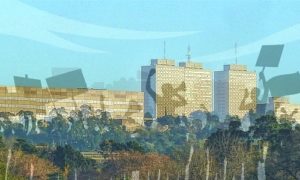Actions of staff at Charlotte Maxeke Johannesburg Academic Hospital during a strike violated human rights by denying a “considerable number” of patients the right to access healthcare services, an SA Human Rights Commission inquiry has found almost two-and-a-half years after the incident, writes MedicalBrief.
Notwithstanding “legitimate frustrations, by shutting down and blocking access to the hospital, the SAHRC found that staff acted outside of their right to assembly and protest and had at their disposal other avenues to canvass their legitimate grievances”. These actions were “tantamount to a human rights violation as they denied a considerable number of patients the right to access healthcare services” .
“By their very nature, in order for protests to be effective, they must often be disruptive to the status quo”, says the report. “However, there is also a significant risk for protests, if not exercised within the confines of the Constitution and the law, to restrict or disrupt the rights of others, or indeed the rights of participants of the protests themselves.”
“The national incident, on 31 May 2018, brought parts of the hospital to a standstill and left the facilities dishevelled. These events appeared to be the result of a long simmering dispute between hospital workers and the Gauteng Department of Health over wage increases and non-payment of bonuses. The protests … drew attention to the potential for healthcare to be similarly disrupted by protest action.”
“The workers are understood to be primarily cleaners, porters and operators. 1.1.2 Reports indicated that the protest action severely disrupted the hospital’s operations, with protesters barring access to the building, trashing certain facilities, and even interrupting surgical procedures.”
Gauteng Health was not left unscathed in the SAHRC report. It found the department's “failure to adequately respond to the worker’s grievances that created fertile ground for the unrest … The protest erupted due to a serious communication breakdown between stakeholders and these conditions put the delivery of healthcare services to the public at risk.”
SAHRC found also that theNational Education Heath and Allied Workers’ Union (Nehawu) leadership “did make efforts throughout the disruptions to broker a solution and prevent disorder”, while the steps taken by the SA Police Service were “proportionate and necessary under the circumstances.
SAHRC directed Gauteng Health to ensure that it, together with the hospital workforce and labour structures, undertook “a joint programme of reconciliation to create a more conducive environment for communication and problem-solving, as well as to create guidelines for any future protest related disruptions to healthcare services.
“Nehawu should provide a report to SAHRC on the outcomes of its undertaking to train shop stewards and sensitise its members to their burden of care when dealing with legitimate grievances.
“SAPS should implement a proactive public disclosure mechanism on protest-related incidents that it reports to the IPID to ensure public transparency and oversight on these matters.
[link url="https://www.sahrc.org.za/home/21/files/Final%20Report%20-%20Investigative%20Hearing%20on%20Charlotte%20Maxeke%20Hospital%20Protests%20%20.pdf"]Full SAHRC report[/link]

